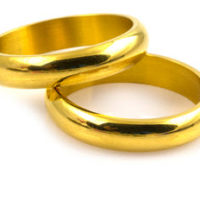Are Retirement Accounts Marital Property?

They can be. Under Pennsylvania law, a couple that divorces or legally separates must divide their marital property, which can include retirement accounts like your 401(k), 403(b), IRA, self-employed 401(k), and pension plan.
To make sure that you do not get hit with a penalty for withdrawing funds, you will need your attorney to draft a Qualified Domestic Relations Order, which we will explain below.
Why are Retirement Accounts Marital Property?
Some of our clients are surprised to hear that their 401(k) could be marital. After all, their spouse didn’t make any contributions to the account. Nevertheless, Pennsylvania law doesn’t require that your spouse contribute financially to an asset for it to be considered marital. Instead, Pennsylvania views marriage as an economic partnership, and assets acquired after marriage are presumed to be marital.
Is the Entire Account Marital Property?
It depends on when you opened the account and how much you have contributed while married. We often see individuals who opened a 401(k) or other account while single, contributed to it, and then continued to make contributions after marriage. In this case, the entire account probably is not marital. Instead, only the contributions and gains after marriage will be subject to division at divorce.
On the other hand, you might have opened your account after getting married. In this example, the entire account is probably marital property.
Determining how much of a 401(k) or other account is marital property can be complicated. You should meet with an experienced Delaware County divorce attorney to review your situation.
Will I Lose My Retirement Account?
If some or all of an account is marital, it goes into a pot with all other marital property, such as your home, cars, vacation homes, etc. A judge then divides equitably if you and your spouse can’t reach an agreement on division yourselves.
It’s possible to keep your entire account. For example, your spouse might also have a retirement account of equal value. In this case, each of you can exit the marriage with your own account.
In other situations, your spouse can get an offsetting amount of other marital property. Your 401(k) might be worth $300,000 and your home could also be worth $300,000. In this example, you can leave with your 401(k) and your spouse can take the home.
Choosing the right assets is critical in a divorce. Not all assets are the same, and you want to maximize your financial well-being by choosing the ones that work for you.
How Do We Split the Account?
Let’s say you are dividing a 401(k) in half. Unfortunately, taking out the money could result in taxes and an early withdrawal penalty. To avoid these negative consequences, you need a judge to sign off on a Qualified Domestic Relations Order, called a QDRO. Your attorney can draft this document for you. The QDRO identifies the account and the amount to be withdrawn. The spouse who receives the funds can then roll them over penalty-free into their own account.
If you have a question about property division, please contact Barbara Flum Stein & Associates today. We are experienced Media divorce attorneys who can help you get the divorce that you need. Contact us today to schedule a free consultation.
Resource:
irs.gov/retirement-plans/plan-participant-employee/retirement-topics-qdro-qualified-domestic-relations-order
https://www.bfsteinlaw.com/pennsylvania-considering-change-to-law-on-pets-in-divorce/



